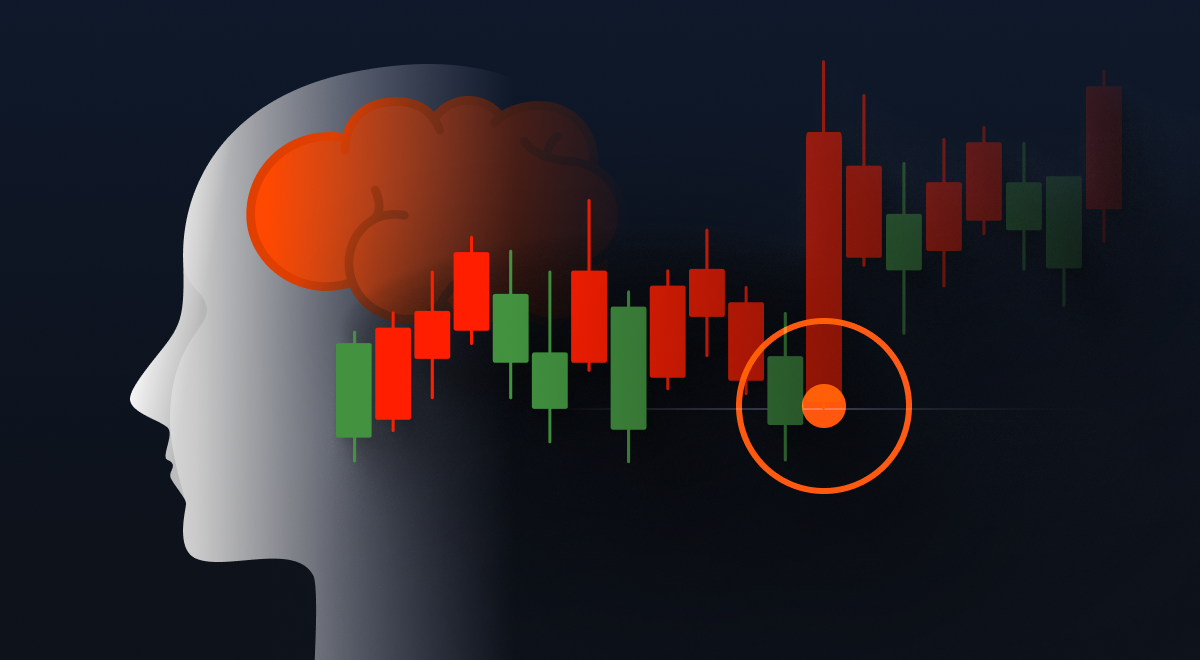The Importance of Psychology in Forex Trading
Jun 13 2025

Anxiety, stress, greed: uncovering the risks and secrets of psychology in Forex trading. How to control emotions and make rational decisions.
Success in trading is the result of multiple factors, not only concerning technical market analysis but also the mental approach and psychological aspects affecting individual traders.
A significant portion of failures in Forex trading is linked to executing trades based on momentary emotions, such as excessive greed or the fear of incurring a loss—often resulting in missed profit opportunities.
As experienced traders know, it is crucial to operate in the markets based on a predefined trading plan, minimising emotional decision-making and prioritising rational, well-thought-out choices made in accordance with a specific trading strategy.
Forex for Beginners: How to Counteract Common Emotions
Let’s explore the most common emotions that tend to negatively impact traders and how to manage them:
- Fear: Just like in everyday life, caution is a good principle, but it can sometimes lead to anxiety and a fear of taking action. In Forex trading, this can mean missing out on lucrative opportunities.
- Greed: How often do we crave more after experiencing success? In trading, this can lead to overextending a winning position until market reversals wipe out all previously gained profits. The key is knowing when to stop and learning to be satisfied with reasonable gains.
- Stress: By definition, Forex trading involves ups and downs, and so does a trader’s budget. This constant rollercoaster can create harmful tension, leading to irrational decision-making. This is why having a trading plan and following the best Forex trading strategies before entering and exiting a market is essential.
Trading Psychology: The Importance of Making Rational Decisions
Listing every emotion that could lead to poor decision-making is nearly impossible. However, understanding the key psychological factors to focus on and adopting the right attitudes is much easier.
For instance, some traders struggle to wait for the right moment to execute a market action, or they place too much trust in a particular sector they believe they know inside out, leading to overtrading. In such cases, adapting to price volatility is crucial—being able to step outside one's habitual mental framework and accept the unique market trends at a given time.
Impulsivity is rarely a good advisor, especially in Forex, where a single decision can determine the success or failure of a trade.
This is why it is vital for beginner traders to understand early on that a lack of discipline in trading can not only lead to financial losses but, even more critically, to a loss of confidence in their own abilities.
On-line Trading Guide: Tools to Help Manage Emotions
Many on-line trading platforms provide tools to help beginner traders follow a structured plan and minimise emotional decision-making.
Besides useful resources such as courses, videos, and tutorials on trading psychology, specific solutions like Stop Loss (SL) and Take Profit (TP) are available. These allow traders to predetermine their exit levels for each trade.
- Setting a Stop Loss ensures an automatic exit from the market when a specified price drop is reached, without needing to constantly monitor the screen.
- Conversely, a Take Profit level—determined through prior technical analysis—automatically closes a trade when a specific price increase is reached, reducing the risk of holding on too long and suffering a potential reversal.
Another valuable tool in trading psychology is backtesting—a practice where traders test a strategy in a demo environment using past market data. If the strategy produces good results in historical conditions, it is more likely to be effective in current markets.
Regardless, effective risk management is essential to counteract the negative effects of emotions in trading. This means understanding and accepting potential financial risks in advance, preventing emotional reactions from leading to impulsive and counterproductive decisions.
STIC Cashback: A Partner for Your Budget, Ensuring Stress-Free Trading
Ultimately, the best way to keep emotions in check when trading Forex is to anticipate market fluctuations and make as many decisions in advance as possible. A clear budget management strategy can significantly aid this process, including solutions like Forex Cashback.
STIC Cashback offers periodic refunds on commissions, with the amount varying based on trading volume. Having a guaranteed refund on a portion of invested capital inherently reduces the stress associated with potential losses.
By ensuring periodic partial refunds, STIC Cashback helps traders—especially beginners—maintain a budget level that allows for long-term decision-making with clarity, without fear of excessive losses leading to rash choices.
Invest with greater confidence thanks to STIC Cashback: experience the peace of mind of periodic refunds today by signing up for our advantageous cashback program.